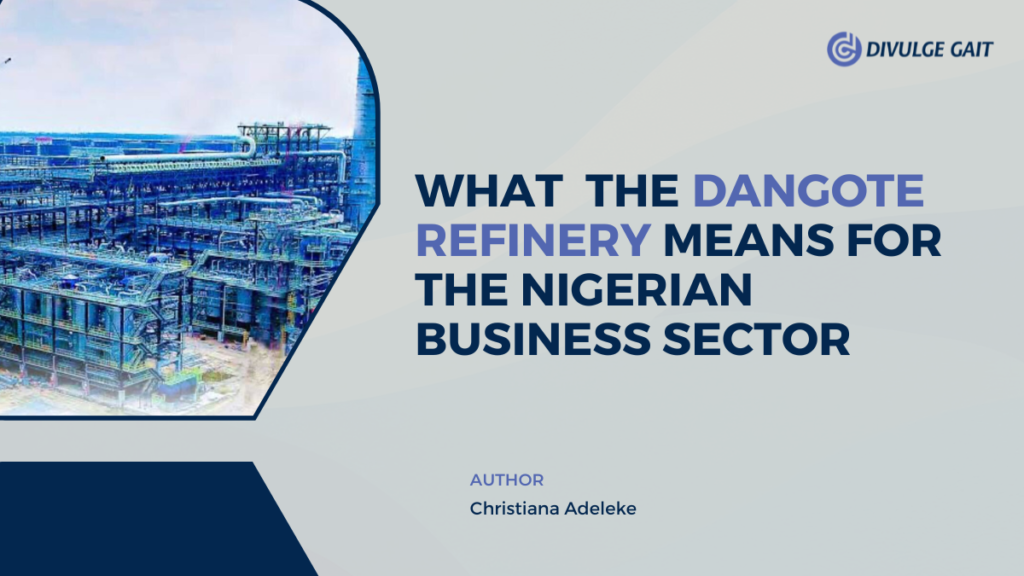We are on the verge of an exciting new era for the Nigerian business sector as President Muhammadu Buhari prepares to inaugurate the highly anticipated Dangote Refinery. This remarkable refinery, situated at the Lekki free zone near Lagos, has the impressive capacity to process an astounding 650,000 barrels of crude oil per day. Such a significant leap forward is set to reshape the Nigerian energy landscape.
One of the most remarkable features of this project is the extensive pipeline infrastructure associated with the refinery, touted as the largest in the world, stretching an impressive 1,100 kilometers. This expansive network will facilitate the transportation of an astonishing 3 billion standard cubic feet of gas each day. Undoubtedly, such a robust infrastructure will revolutionize the energy sector in Nigeria, opening up unprecedented opportunities for growth and development.
The inauguration of the Dangote Refinery has captured significant attention within the Nigerian energy sector, particularly in light of the government’s plans to remove petrol subsidies in the second half of this year. Fuel subsidy payments have steadily increased over the years, reaching an astounding N4.39 trillion in 2022. To address this financial burden, the Nigerian government has allocated N3.6 trillion to fund fuel subsidies for the first six months of 2023. However, there is renewed hope that the completion of the Dangote Refinery will signify a turning point, reducing fuel imports and reliance on subsidies.
Recognizing the immense potential of the refinery to transform the nation’s energy landscape, the federal government has taken a momentous step by granting approval to NNPC Limited, the state oil firm, to acquire a significant 20% stake valued at $2.76 billion in the Dangote Refinery. This decision marks a crucial shift in the government’s approach and underscores their unwavering commitment to harnessing the refinery’s immense capabilities for the benefit of the Nigerian economy.
Now, let’s delve into the impact the Dangote Refinery will have on the Nigerian business sector:
- Reduced reliance on imported refined petroleum products: The refinery will significantly decrease Nigeria’s dependence on imported refined petroleum products. This achievement holds tremendous potential for cost savings and enhanced energy security. By domestically producing refined products, Nigeria can curtail foreign exchange expenditure and foster a more self-sufficient economy.
- Job opportunities: The Dangote Refinery is poised to generate numerous job opportunities, both directly and indirectly. Given the scale of this mega-project, a substantial workforce will be required, contributing to the reduction of unemployment rates and poverty levels in the region. Additionally, the development of ancillary industries and supporting businesses will emerge, invigorating the overall business ecosystem and promoting entrepreneurship.
- Ripple effects across various industries: The impact of the refinery will extend beyond the energy sector, positively influencing various industries. With the availability of locally refined petroleum products, transportation costs are likely to decrease, benefiting logistics companies and leading to a reduction in the cost of goods and services. This increased competitiveness of Nigerian businesses, both domestically and internationally, has the potential to attract foreign investment and bolster economic growth.
Conclusion
The inauguration of the Dangote Refinery signifies a pivotal moment for the Nigerian business sector. This momentous project is poised to revolutionize the energy landscape, diminish reliance on fuel imports, and foster a more self-sufficient and economically vibrant nation.
As we embark on this transformative journey, the business sector stands on the brink of reaping the rewards, with the promise of job creation, cost savings, and heightened competitiveness on the horizon. The Dangote Refinery is not merely a refinery; it is a game-changer for the Nigerian business sector.


